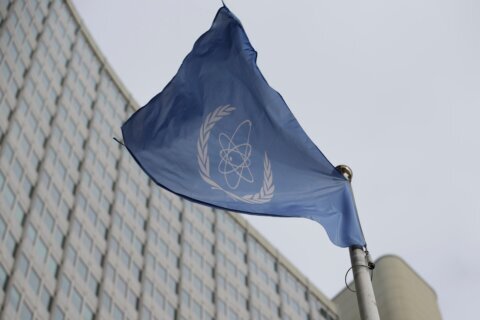WTOP’s Thomas Warren’s week-long series “Generation Positive” is an in-depth look at the HIV epidemic in the U.S. and Washington, D.C. In a four-part web series and an eight-part series on-air, he will be taking a look at measures being taken to beat HIV/AIDS and breakthrough developments in the search for a vaccine.
Thomas Warren, wtop.com
WASHINGTON – Results from a recent trial in Thailand have renewed hope that a preventive HIV vaccine may be on the horizon.
The study showed that subjects given a combination of two vaccines — a primary vaccine called ALVAC-HIV and AIDSVAX-B/E — lowered their risk of infection by 31.2 percent.
“It was the first time that an HIV vaccine had shown any evidence of protection,” says Dr. Jerome Kim with the U.S. Military HIV Research Program (MHRP).
The Thai Phase III HIV vaccine clinical trial, also known as RV 144, was conducted from October of 2003 to June of 2009. More than 16,000 patients were followed at clinics and health centers in Rayong and Chon Buri provinces.
The vaccines only showed effectiveness when used together. The ALVAC-HIV vaccine boosts what are called “killer cells,” and the AIDSVAC-B/E stimulates the production of antibodies to work against the HIV virus.
Pain at the site of injection was said to be the biggest side effect reported.
There are nine subtypes of the HIV virus. Subtype E, which is most prevalent in Thailand, and subtype B, which is mostly found in the U.S., were tested.
Though the success rate is promising, a concern is that the vaccine’s effectiveness tailed off over time.
“It looks like it was quite effective at one year, less effective in a year and a half, less effective in two years,” Kim says.
Kim worked on the study and says the results will give unprecedented insight into the development of a global HIV vaccine.
“In combination with other effective prevention measures you might really, with even a 30 percent vaccine, be able to break the back of the epidemic,” Kim says.
Researchers believe they may have identified clues as to why the vaccine worked, and have begun to advance on the results from the RV 144 trial.
The MHRP is involved in another vaccine trial currently ongoing in the U.S. That trial aims to boost immune responses with a combination of vaccines.
Researchers also are using a new injection system in that trial.
“At this point, it’s not going to replace the needle, but it’s something many groups are looking at,” Kim says.
Preliminary data from the trial have yet to be released. However, Kenya, Tanzania and Uganda will be added as test sites.
It’s this kind of work that has Kim optimistic that a vaccine may one day be a reality.
“Three years ago people were saying an HIV vaccine may not possible, but I think we’re at the point now where we might be able to say in the future we may be able to control the HIV epidemic,” Kim says.
Dr. Anthony Fauci, director of the National Institute of Allergy and Infectious Diseases, takes it a step further.
“In the absence of a vaccine, we have at our disposal now enough tools of prevention which could have a major positive impact in turning around the trajectory of the epidemic,” Fauci says.
Related content:







